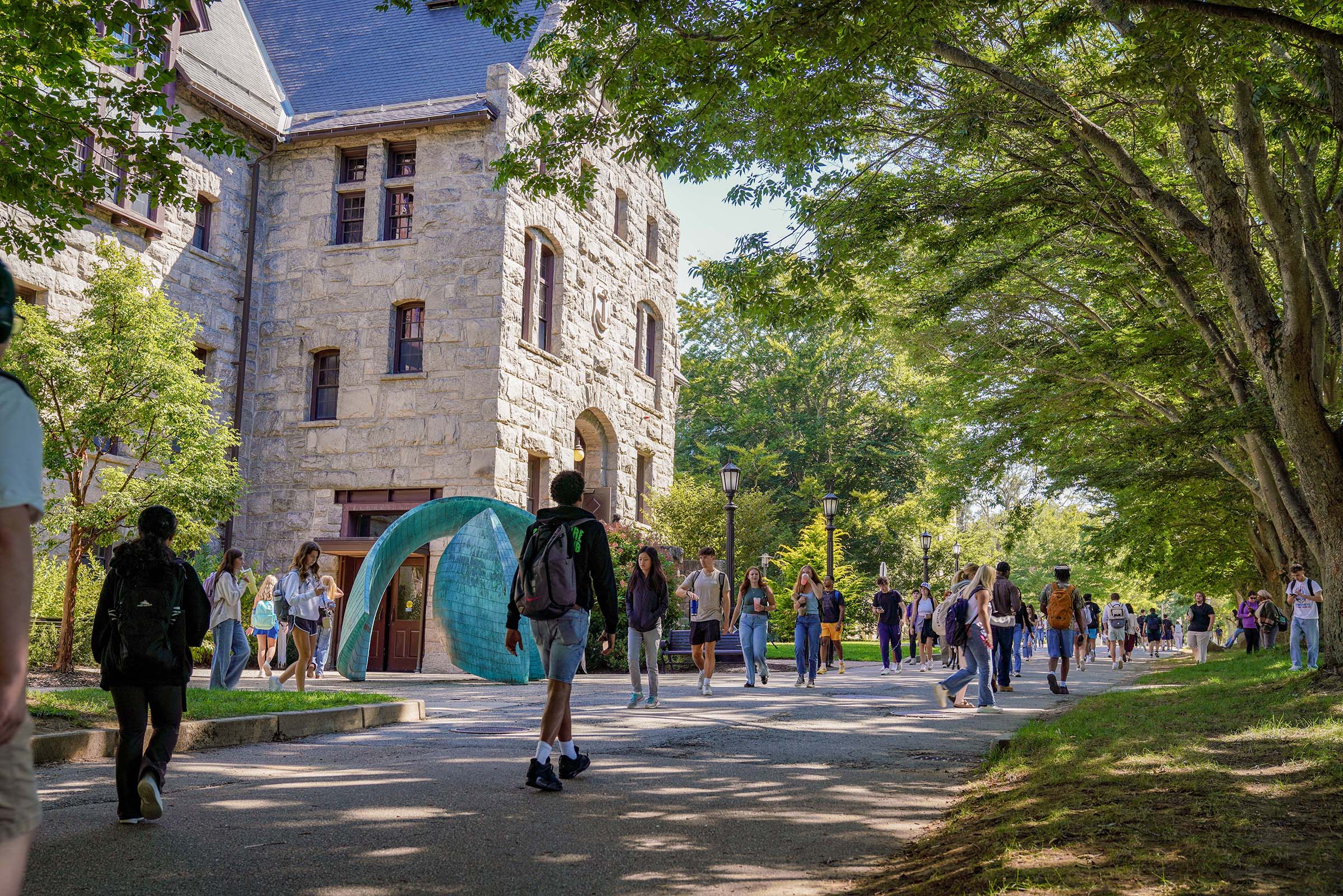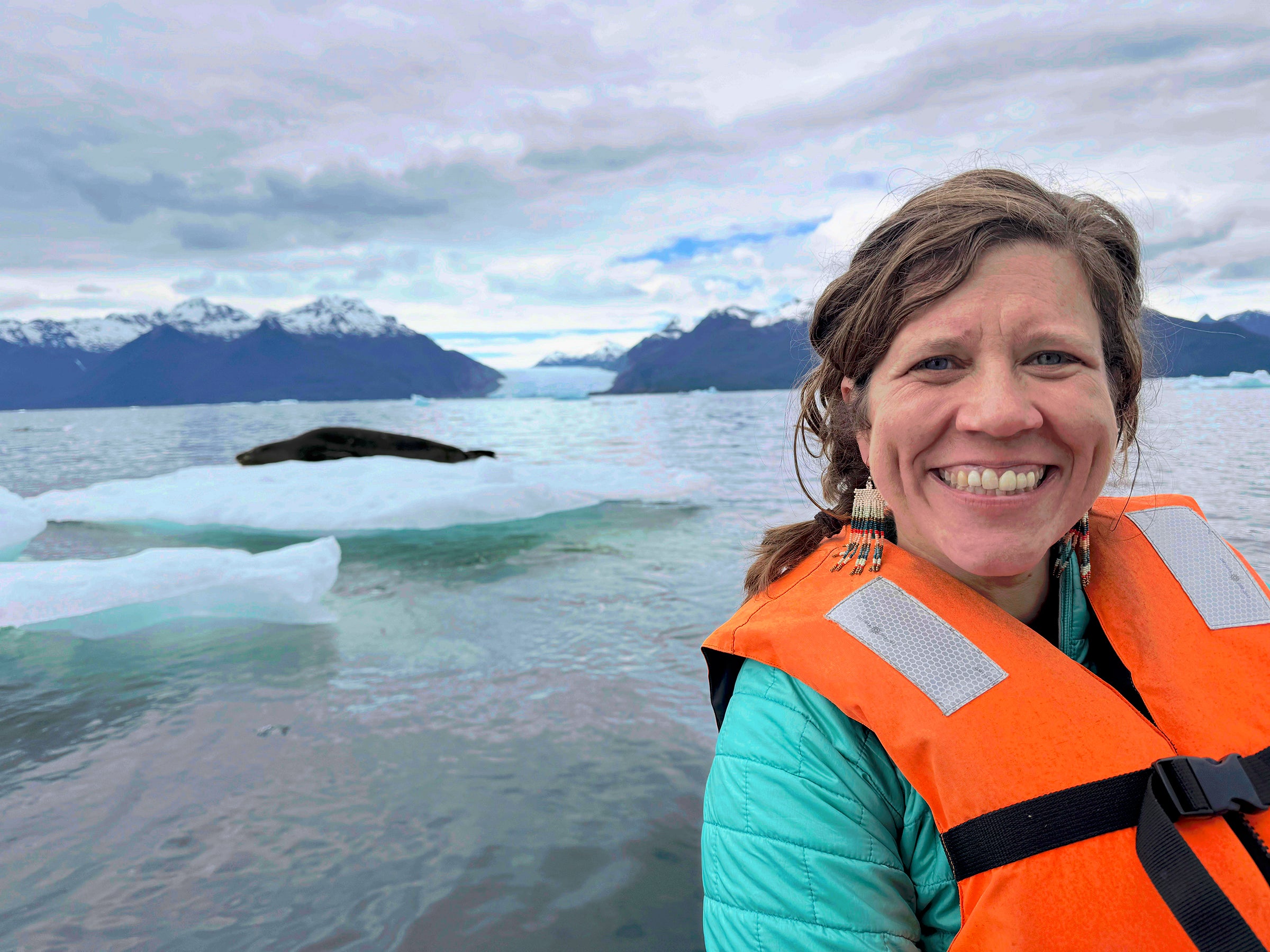URI political science professor explores growth of digital repression around the globe
KINGSTON, R.I. – Aug. 18, 2025 – One of Skip Mark’s “favorite” examples among the growing list of policies on the use of technology that could be used to suppress people’s rights is robot dogs. In November 2022, the Board of Supervisors in San Francisco voted in support of allowing police to deploy robot dogs to use lethal force in extreme circumstances – when the public or police are in imminent danger.
With the rapid growth of technology, the threat of digital repression has become a global issue. And countries, states, cities and towns are developing their own policies in regard to the use of new digital tools, says Mark, professor of political science at the University of Rhode Island and an expert in human rights.
“What we’re missing is a comprehensive international set of digital rights that says what you can and cannot do,” he adds. “We have that for other human rights.”
Mark is director of URI’s Center for Nonviolence and Peace Studies, which produces an annual human rights report that grades each nation of the world for its respect of 25 human rights. Part of the Global RIghts Project, the report draws on the CIRIGHTS Data Project, the world’s largest quantitative human rights database.
Now, Mark is working on a similar dataset chronicling digital repression’s impact on human rights. Digital repression is defined as the use of digital technologies by governments and others to suppress freedom and control dissent through surveillance, harassment, censorship, and other tactics. And as digital tools have evolved, so has their use to maintain power and suppress dissent.
“Even reading all of the human rights reports and doing human rights research, I didn’t realize quite how far the technology to do this stuff had come,” says Mark. “When I started looking into it, I was pretty terrified. It was like 1984 – the ability to monitor everything we do.”
The idea for creating the dataset came from Meredith Laval, a University of Georgia Ph.D. graduate who wrote her dissertation on digital repression. Laval, who will be a Humboldt Research Fellow at the University of Mannheim this fall, asked Mark if he was interested in trying to measure digital repression. Mark is fascinated by human rights and the use of data: “I think if we can measure something, we can figure out what causes it and how to improve it,” he says. So he was an easy sell.
Three years ago, he started the project, “Digital Repression and Governance of Networks and Surveillance Dataset,” in partnership with the University of Georgia, which runs the Human Rights Measurement Initiative dataset.
The project, Mark says, is different from the annual GRIP human rights report.
“We’re trying to drill down a bit,” he says. “There’s not a clear international law that governments shouldn’t use such tactics as censoring the internet, or blocking Facebook. These are legal gray areas. We want to collect the information and see what it looks like around the world and create a dataset that can tell us where it’s happening, how it’s spreading—Is it getting better or is it getting worse?”
For Mark, the goal of the project is threefold—to find successful policies to restrict the use of digital tools to suppress human rights; to provide activists, civil society organizations, and journalists with the knowledge and statistics they can use to push for change; and show that it is more than just authoritarian governments using digital repression.
“This happens everywhere. It happens in the U.S., U.K., China,” says Mark. “This is not just an authoritarian tactic. It’s one way that democratic leaders can use to get around checks and balances and the rule of law.”
Last spring, Mark was awarded a Public Policy Lab fellowship from URI’s Social Science Institute for Research, Education, and Policy to help pursue the project that included funding for two student fellows—Alex Bolland and Sidra Tanbakji—to code the data over the summer.
Georgia and URI researchers have been collecting data to see how digital repression has transformed over the last 20 years. They’ve coded data so far for 2023, 2022, and 2012. This summer, they’ve been working on data from 2002. They have used a combination of the CIRIGHTS methodology and that of conflict literature to collect event data, from such sources as the U.S. State Department Report on Human Rights. Coding data for each country in the world, they track 18 tactics and answer 32 questions per country.
While the work is time consuming, Bolland, a junior majoring in molecular neuroscience, says the opportunity to work on the project attracted her because it combined science, ethics, and public policy—areas she hopes to pursue after college. It has also given her a view of how digital repression varies across countries, and over time.
“Coding for 2002 really made that clear,” Bolland says. “There was much less digital infrastructure back then, so instead we’re seeing more physical and bureaucratic repression tactics, which reinforces how adaptive and layered state control can be even before widespread internet access. It’s been both fascinating and sobering to see those shifts come into focus through firsthand documentation and reports.”
The next step, says Mark, is working with civil organizations and activists in countries around the globe to see if what the researchers are capturing from reports and other sources match what they’re seeing on the ground.
“We want to validate what we’re capturing and figure out what we’re missing,” he says. “Part of that will be interviews with those targeted by the tactics to verify what the reports say is happening and see if there are other things that are not showing up in the reports.”
Latest All News
- URI engineering professor awarded NSF grant to study nature-based answers to wave, current hazardsKINGSTON, R.I. – Aug. 19, 2025 – Rhode Island’s coastline is eroding by nearly two feet annually, with some areas more than double that, according to the Coastal Resources Management Council. Rhode Island’s shoreline loss is especially profound in high-energy wave areas along the state’s more-exposed southern coast. University of Rhode Island Assistant Professor Che-Wei […]
- URI offering new programs for the 2025-26 yearKINGSTON, R.I. – Aug. 19, 2025 – Fall semester classes begin at the University of Rhode Island on Sept. 3, and this academic year the state’s flagship public research university is offering several new programs. Among new undergraduate options, the University will offer a B.A. in Business Studies, an online RN to BSN degree, and […]
- URI professor receives NSF CAREER Award for study of Southern Ocean predatorKINGSTON, R.I. – Aug. 18, 2025 – Trait differences between males and females are widespread across the animal kingdom. Because these traits often lead to trade-offs that affect their reproductive success and survival, understanding them is a fundamental question in biology. The leopard seal, a large predator in the Southern Ocean, offers an extreme example […]
- Jensen Named Head Coach of RamettesKINGSTON, R.I. - Rhode Island alumna and former New England Patriots cheerleader Kayla Jensen has been named as the new URI Ramettes head coach.
- How did freshened water end up beneath the seafloor? Sediment collected by scientists may reveal answersKINGSTON, R.I. – Aug. 18, 2025 – How did freshened water end up beneath the New England Shelf miles offshore, how long has it been there, and how much of it exists? Rebecca Robinson, a professor in the University of Rhode Island Graduate School of Oceanography, is attempting to answer those questions by studying samples […]
- Tariff-induced uncertainties cloud R.I. economy’s recession status, says URI economistAug. 15, 2025 WHAT: Rhode Island’s economic performance for June continued the year’s trend of the Current Conditions Index slipping into or remaining in contraction territory. June’s CCI value matched May’s outcome of 42 as the index remained below year-earlier values each month this year. While some indicators improved in June, those improvements were tepid […]












